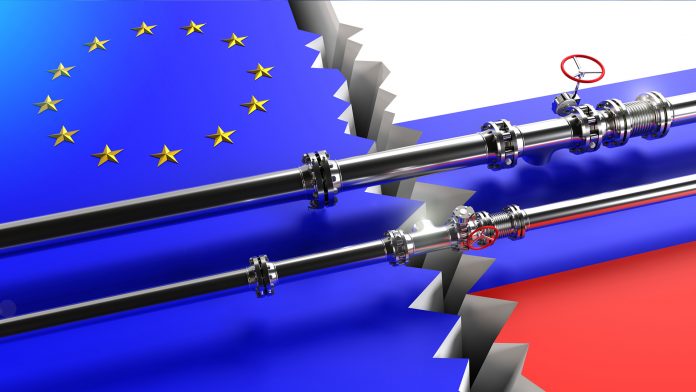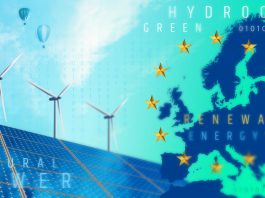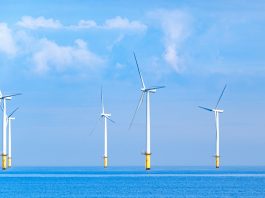What does the European Commission’s REPowerEU Plan mean for the future of European clean energy markets?
As Russia’s invasion of Ukraine continues to unfold, it has initiated massive disruptions to global and European energy markets. Europe’s reliance on such an unreliable partner is becoming fraught. Reinventing Europe’s energy architecture to reduce independence on Russian Fossil fuels has become critical, with the European Commission being forced to act.
What is the REPowerEU Plan?
Europe’s reliance on Russian fossil fuels is widely accepted as an economic and political weapon used by Russia. The Commission estimates this dependency costs European taxpayers €100bn per year.
A Flash Eurobarometer survey, published on 5 May 2022, depicted broad support for the EU’s actions in the field of energy, with 85% of Europeans championing plans to reduce dependency on Russian fossil fuels. However, not all European countries are united in this endeavour. Hungary opposes a Russian oil ban by the end of 2022, noting it could not back measures that could endanger supplies.
To combat the ongoing energy crisis, REPowerEU – proposed by the European Commission – intends to help phase out reliance on Russian fossil fuels. As Europe stands in solidarity with the people of Ukraine, the REPowerEU Plan was presented on 18 May 2022 and outlines a strategy to attain European independence from Russian fossil fuels before 2030.
The plan aims to accomplish three main objectives: energy conservation, diversifying supplies; and accelerating Europe’s clean energy transition. This will be achieved by hastening the rollout of renewable energy to replace fossil fuels in homes, industry and power generation, all while smartly combining investments and reforms.
The proposals include increasing the EU’s 2030 headline targets for energy efficiency from 9% to 13% and renewables from 40% to 45%. The plan, which the Commission says is in line with the European Green Deal and the EU’s net zero ambitions, is expected to provide a significant boost to solar, wind and green hydrogen power. The green transformation is intended to strengthen economic growth, security, and climate action for Europe.
The plan will spur interesting discussions surrounding funding and require a high degree of coordination and alignment between the Member States implementing the various policies and recommendations.
How will the REPowerEU Plan tackle the rising energy bill crisis?
Amidst the ongoing crisis in Ukraine, energy prices are dangerously high, exasperating the already tense financial situation for many households in Europe. As well as these pressing concerns, addressing the ongoing climate disaster must also remain a priority. The Climate Change 2022 report, conducted by the Intergovernmental Panel on Climate Change (IPCC), reiterates the need to limit global temperature rise to 1.5°C to avoid catastrophic social, environmental and economic impacts. The plan focuses on energy savings as one of its key pillars to address these issues.
According to the European Commission, the quickest and cheapest way to reduce energy dependency is by using less of it. Building on the ‘energy efficiency first’ principle, already fundamental to the Fit for 55 package, the Commission proposes to increase the overall binding target of an EU-wide 9% increase in energy savings to 13% by 2030 (compared to the 2020 baseline). Member States are further encouraged to organise campaigns urging people to change their energy usage behaviour and offer fiscal incentives for energy efficiency investments.
Accelerating the rollout of renewables
Pillar three of the plan focuses on achieving a more diversified energy supply for Europe and escaping reliance on Russian fossil fuels. The key is to accelerate the rollout of renewable energy, emphasising that renewables are at the core of Europe’s energy security.
How will this affect the current state of clean energy markets?
Effects on wind power
The REPowerEU Plan acknowledges the necessity for wind energy permitting to be drastically accelerated. To that end, the Commission has tabled a new legislative proposal on permitting renewables, which will be folded into the ongoing review of the EU Renewable Energy Directive.
The Commission has also published a permitting recommendation and detailed guidance to governments on simplifying their permitting rules and procedures to accelerate the rollout of wind power.
WindEurope CEO Giles Dickson said: “The REPowerEU Action Plan hits the nail on the head. The EU wants to build out wind energy from 190 GW today to 480 GW in just eight years. But you can only do that if you simplify the permitting. And that’s what REPowerEU aims to achieve. It also acknowledges the EU has to support the wind industry supply chain. Bring on this support: new renewables must be made in Europe.”
Effects on green hydrogen
On 31 May 2022, EU decision-makers and stakeholders attended the Renewable Hydrogen Summit in Brussels, organised by the Renewable Hydrogen Coalition (RHC), to discuss the policies required to accelerate the renewable hydrogen uptake in Europe, and deliver the REPowerEU Plan.
The European Commission estimates that upscaling green hydrogen production and its derivatives would accelerate decarbonisation and reduce the EU’s reliance on natural gas from Russia by approximately 27 bcm.
“We have to diversify away from Russian fossil fuels,” explained the EU’s Energy Commissioner Kadri Simpson. “This means speeding up the green transition. Renewable hydrogen plays a crucial role to decarbonise hard-to-electrify industry and transport. We need it for the planet, and we need it for our independence and security of energy supply. With RepowerEU, we plan to roll out this solution faster, taking our EU Green Deal ambitions to the next level and giving ourselves the tools to make it happen”.
The RHC Chair, Mr Ignacio Galán, Chairman and CEO of Iberdrola, added: “Renewable hydrogen is a solution for today and for tomorrow. It can significantly replace imported fossil fuels and polluting hydrogen made out of these fossil fuels. The Renewable Hydrogen Coalition members are helping to deliver EU climate and energy ambition, making our continent cleaner and stronger thanks to home-grown renewable hydrogen produced with technologies made in Europe. We congratulate the Commission’s strong leadership in REPowerEU.”
The Commission also longs to double the deployment rate of individual heat pumps and increase renewable hydrogen production. It recognises the need to decarbonise Europe’s hard-to-abate sectors with more dedicated EU funding for electrolyser manufacturing.
Effects on solar power
Commission proposals also highlighted the role of rooftop solar in repowering the EU, aiming to install 15 TWh of solar rooftops before the end of 2022. Including the rooftop solar goal, the RePowerEU strategy sets out 420 GW of additional EU solar capacity by 2030, bringing total solar installation in the EU to 585 GW.
Large corporations, such as Solar Power Europe, are getting involved with the Commission’s clean energy objectives to recognise the renewed geopolitical urgency of the renewables transition.
“The EU needs to become independent from Russian gas and oil as soon as possible. Solar is set to deploy over 30 GW, including 1.5 million solar rooftops, by the end of 2022,” stated Walburga Hemetsberger, CEO of SolarPower Europe.
“With the right frameworks in place, 1 TW of solar capacity is within reach for Europe by 2030. European solar deployment has surpassed expectations year after year, succeeding in some of the most difficult market circumstances. We call on the European Commission to recognise the true power of solar and set the ambition needed to achieve our climate and security goals.”
Effects on biomethane production
Biogas and biomethane production are widely spread across the EU, and the industry is now experiencing an accelerated expansion. As part of the REPowerEu Plan, the Commission wants to increase the rollout of renewables through a dedicated Biomethane Action Plan, achieving 35 bcm of biomethane production by 2030. The Commission has proposed the creation of a Biomethane Industrial Alliance to help meet the targets.
Commentating on the creation of an alliance, Harmen Dekker, CEO of the EBA said: “The industrial alliance proposed by the REPowerEU is an essential instrument to steer cooperation between policymakers, investors and the biomethane value chain to drive technological innovation, address bottlenecks, such as cross border trading, and ultimately speed up the expansion of the sector. The 37 billion euros of targeted investments proposed by the Commission can support the development of new capacity and infrastructure to accommodate biomethane into the gas grid and create energy communities.”
“The sector is set to play an important role in securing energy independence and climate-neutrality in Europe, enabling the transition towards renewable energy and all the benefits it can bring to local circular economies, with the relevant legislative support,” explained the European Biogas Association (EBA’s) new appointed President.
The plan includes a targeted revision of the Fitfor55 energy efficiency and renewable targets, together with the necessary measures to accelerate RES permitting and recommendations to facilitate a renewable gas injection.
“Achieving the biomethane target will require significant efforts and dialogue between policymakers, investors and representatives of the biomethane value chain,” added Harmen Dekker.









